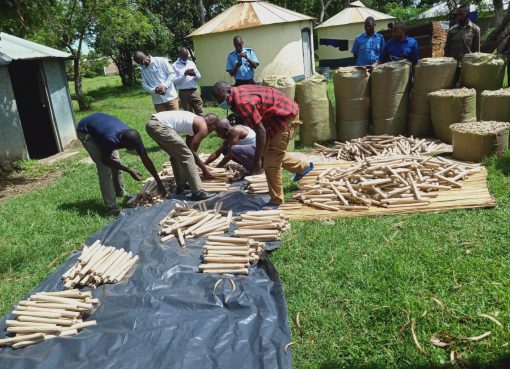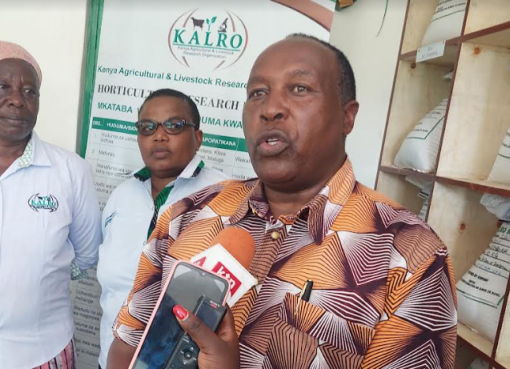Marriage is all about love and safe environments. Or it should be.
But for those women who do not enjoy either of the two, some suffer in silence while the other battered lot report the cases to the authorities, either the police or the chief in their locality.
This gloomy picture of the marriage institution was soiled more in rural and urban centers during the lockdown of Covid-19.
Martha Wanjiku, not her real name), is a victim and survivor of domestic violence meted to her by someone she loved dearly until Covid-19 was reported in the country.
Narrating to KNA yesterday from her one-roomed house in Ngegu area in the Indian bazaar, the distraught woman tells her story with regret. She cannot understand why she held onto her marriage for a long time with no expectations that the perpetrator would change someday and love her with their 2 children.
“My very first memories are like a stack of polaroid pictures. The colors are hazy; none of the scenes are in themselves a full memory of what would happen to a person in their right thinking,” the mother stated with tears dampening the corners of her eyes.
Martha’s marriage story is, unfortunately, not unusual. She stated that she has a perfect personality. Her eagerness to please, kind smile and trusting attitude helps her make a lot of friends but also leads predators to her doorstep
She was raised up in a Christian family with a caring and more loving father who had open arms to every person who visited their home.
Growing up, she met and tied a note with Dennis. Her marriage was colorful with pomp and color.
Every beautiful moment of her first days in a marriage made her treasure and develop a strong bond towards Dennis. No words said nor actions shown by her husband would make divorce an option to Martha when she embarked on her journey to the marriage. She maintained strong grounds to defend her husband amidst any accusations made by the outsiders.
“It was until I gave birth to my second born that I came to learn I had chosen a lifestyle path separate from the church. My husband took a different turn.
He stated abusing alcohol and anytime I would question him all he said was ‘I am just having a couple of beers to relax” Martha narrated.
Her husband convinced her that he was not an alcoholic and that he was a changed man. Martha’s nurturing heart fell in love with this perpetrator who cried in her arms and struggled with anger and seemed to soften to her touch.
Time went by until the unprecedented disruption of all economic activities in Kenya by the COVID-19 19 pandemic rendering Martha’s husband who worked as a teacher, jobless. He resorted to asking for money from his wife to go buy alcohol.
Anytime Martha resisted, she would be beaten up and ran for her safety to the neighbors’ houses. Family and friends felt disturbed by what their daughter was going through. They advised her to call it quits and go back home but she would not listen to any of them all because she did not want to separate her children from their father.
“I held on for the sake of my children; I did not want them to grow up in the hands of a single mother. Most of the times he abused me physically I stayed silent and even protected him from my angry family who would sympathize and attempt to intervene to rescue me from the abusive marriage,” she said
“I was loved, deceived, cheated, and treated with contempt. My only wrongdoing? I loved it too much. I became too timid to call him out on his philandering habits. The emotional damage inflicted on me harbors bitterness and self-hatred when I think about it today.
The protection could not last long. Dennis continued to grow horns. At times he would even steal the money she worked hard for leaving her to starve with their 2 boys who had a real appetite despite the violence in their midst.
As time went by, Martha’s business went under terribly forcing her to close down since she could not afford to pay for her Mitumba stall in Kiambu town. Staying at home worsened her daily experiences. Her husband turned her into a punching bag. His abuse towards her became a constant headache that showed no sign of going away anytime soon.
Whenever she could not bring anything to the table, her husband would rain blows on her mercilessly. The abuse continued even on the streets with her husband hurling beer bottles at her.
She could run and hide in the cupboards. She could not fathom that Dennis could hit her like that.
When she could not stomach it any longer, she opted to call her mother who in turn called the police. Her husband was arrested, charged in a court of law, and in September 2020, he was convicted of assault and jailed for 2 years imprisonment.
Martha is just but one among many women who have suffered during the lockdown occasioned by COVID-19 19 pandemic. Home, according to her, is often not a place of safety any longer as she dreads to remain indoors fearing that he could easily escape from jail and find her unawares.
It is very much unfortunate and dismaying that domestic violence cases are too often underestimated and go unpunished which enables the abuse to continue and damage undermining the psycho-social and physical health of the victim at the home environment which is expected to comfort the occupants.
Research by Federation International De Abogadas (FIDA) prior to the launch of the hotline number for gender abused violence on April 15 indicated that by May 3, FIDA recorded 289 cases of domestic violence. Among the cases gender-based violence 81 cases and child custody and maintenance of 117 cases.
Most affected counties according to the research are Mombasa, Kiambu, Kakamega, and Nairobi. Research by KNA at the Kiambu Law Courts indicated that since May 2020, the court has dealt with 50 domestic violence cases ranging from physical assault, defilement, and psychological torture.
The above data suggests that domestic violence is turning into an opportunistic infection, flourishing in the conditions created by the pandemic.
Staying at home has left most residents entangled in more arguments that breed abuse. It has made many national and international bodies establish how intense psychological as well as physical mistreatment can get to when people are kept more hours indoors together in a day.
Residents of Kiambu are however advised by the area OCPD J.K. Mitugo to report any cases of domestic violence to the relevant authorities for justice to be served.
Mitugo urged anyone receiving any sort of abuse close to domestic violence not to give up on their freedom and self-worth. He stated that it is this collective responsibility that will make it possible for society to discard domestic violence and allow everyone to participate in national building without being denied the opportunity as has been the case when those who are battered are unable to report to their place of work owing to the injuries.
The police boss cautions that perennial violence can be fatal and if not addressed before it gets out of hand can cause death and suffering to innocent members of the societ
by Lydia Shiloya and Afwande Pauline





